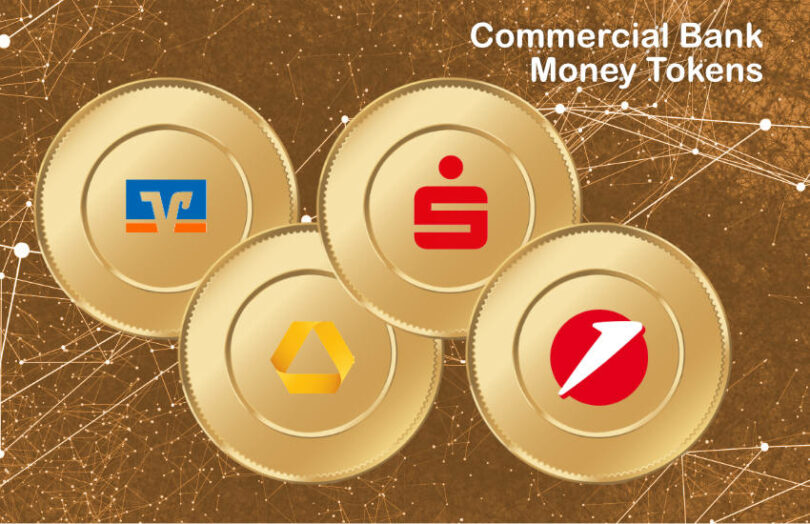Last week we reported that Germany’s DZ Bank and other banks were working with four corporates on a proof of concept or deposit tokens. We can confirm the other banks are Commerzbank, Helaba and Unicredit. The banks are using a model developed in conjunction with the four major German banking associations for commercial bank money tokens (CBMT). This week the associations expanded the concept to support multiple currencies.
At a big picture level, the CBMT system enables clients of different banks to pay each other using digital currency, similarly to conventional bank payments. The tokens are minted onto third party DLT networks such as a consortium blockchain with corporate customers as the target users.
If a corporate receives a bank deposit token where it doesn’t have an account with that bank, it will be converted to a token of its own bank. In essence, the banks exchange the tokens and settle with each other in a similar way to conventional payments.
Expanding to multiple currencies
This week’s publication by the banking associations explores how the CBMT model could support multiple currencies. Some companies may only have bank accounts in a single currency, but plenty of corporates have accounts in two or more currencies and are happy to receive those currencies without converting them. Where a company receives a token in a currency for which they don’t have an account, it will be automatically converted to a token of their own bank in their home currency.
So far, the paper didn’t specify which bank will handle the foreign exchange (FX) trade, although we expect it to be the recipient’s bank.
However, for larger DLT networks, banks might have competition for FX. Banks are notoriously expensive when it comes to FX transactions. Say there’s a DLT network for international trade, with a reasonable proportion of transactions involving FX. The DLT participants might be keen to have one or more specialist FX operators on the network to execute the FX transactions at a better rate. Hence the banks would lose out on that slice of revenues. One of the German banks commented to Ledger Insights, “It’s open to competition. It’s OK.”






